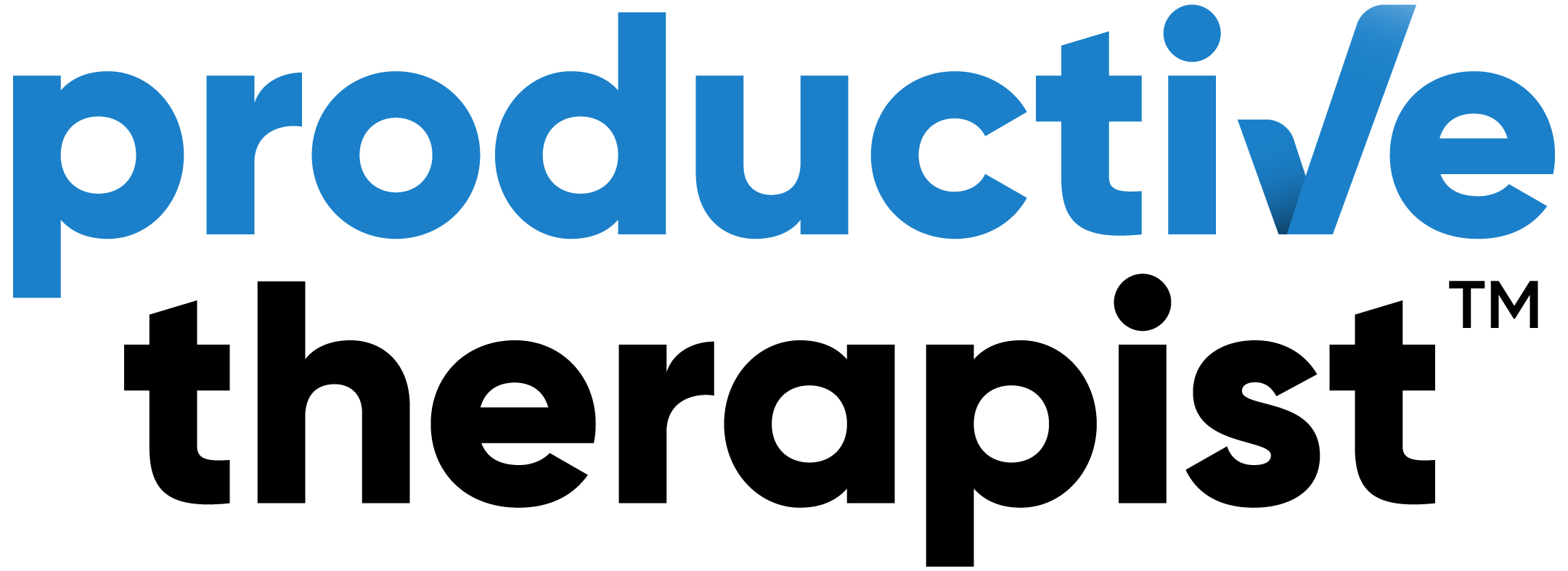Special Offer: Get your first 2 months of SimplePractice for the price of one when you sign up for an account today. This exclusive offer is valid for new customers only. Check out the details.
Do you need help to reach your goals?
Join me as I share with you three crucial steps to help you finally reach your goals.
In This Episode, You'll Learn:
- How clarity can help you move forward
- How you can focus on your goals
- How accountability can revolutionize your success
Resources Mentioned In This Episode:
Hello, hello! Welcome back to the podcast. So glad that you're listening.
Today, I wanted to take just a few minutes and talk to you about some tips to help you reach your goals.
This is something I think about and talk about and read about often. I feel like it's so important because it's easy to have ideas and it's easy to have sort of a vision and a hope and a dream. But it's much more difficult to take those things and then turn them into actual reality. Make your dreams into a reality, as I like to say!
So I want to talk to you about three things.
The first thing you need is clarity.
The second thing you need is focus.
And the third thing you need is accountability.
And there's a ton that I could say about each of these, but I'm just going to give you a few sort of highlights and tips about each one, and then you can decide for yourself what is most important for you to focus on.
So I set a lot of goals for myself, for my personal life and for my two businesses. In fact, this year I have seven personal goals, I have nine goals for my counseling practice, and I have eleven yearly goals for Productive Therapist.
But I just want to say real quick that it's okay to set goals and not reach them. It's okay to aim high and then not accomplish everything that you set out to do. And you don't need to feel bad about that.
In fact, right now I just looked at my goals for the year, all of them, and I'm probably making significant progress on about 50% to 60% of them. And sometimes that doesn't feel great. But I have to remind myself that that's actually okay. It's better for me to try to accomplish more and then get set to 75% versus setting my goals too low.
Okay. So the first thing that you want and that you need really is clarity. You have to know what you're aiming for. You have to know what you want. And this might be different at different phases of your life, but for me, it's really important to optimize for joy.
So when I look at my goals, I want to be excited about them. When I read them, when I write them down and look at them, I want to get energy and excitement from them. Maybe not every single time, but it just has to fit that criteria for me.
So if you're in a spot right now where you're wanting to make some changes in your life personally or in your career, in your work as a therapist, think about this: a Venn diagram - so three circles, concentric circles.
In one circle, you can write down what are the things you truly enjoy. And one of them might be providing therapy, but there's lots of other things that you enjoy as a person.
Another circle is, what are the things that you're really good at? I don't know about you, but I sometimes find that I enjoy doing things that I'm not very good at. I think woodworking, maybe it's one of those things!
So what do you enjoy? What are you good at?
And then in the other circle, what will people actually pay you for? So if you find the thing that lands in the middle of those three circles, that's going to help you find what you should probably be focusing on.
So clarity is super important, and there's tons of different exercises and ways that you can get to clarity. Some people like to write out their ideas. Some people like to externally process by talking to friends or business coaches or other folks. Some people need to kind of get a loan and maybe take a walk or a hike or something like that and really think about and internally process what's important.
What do I want from the next year of my life? What do I want from the next three months? Where do I want to go? So that's clarity.
Let me take just a quick pause and tell you a bit about our sponsor. This episode has been sponsored by Simple Practice, the leading practice management platform for private practitioners everywhere. More than 750 professionals use Simple Practice to power telehealth sessions, schedule appointments, file insurance claims, communicate with clients, and so much more. It truly is an all in one HIPAA compliant platform. Get your first two months of Simple Practice for the price of one when you sign up for an account today. This exclusive offer is valid for new customers only and you'll go SimplePractice.com/ProductiveTherapist to learn more.
The next thing is focus. So you can have all the clarity in the world and have a very clear picture of what you want from your life and from your practice.
But if you don't actually get down to focusing and applying some intentionality to those clear goals, you're not going to make any progress. So you really need a plan to implement your vision.
And there's a virtual mentor of mine, his name is Tiago Forte, and last year I took his course called Building a Second Brain. It was really fantastic. It's all about personal knowledge management.
And he had a really good YouTube video recently that I shared with the members of Focus Club talking about how to reach your goals. And he was talking about the difference between a goal and a project.
So he said that a goal without a project is a dream, and a project without a goal is a hobby. And that just seemed so profound to me.
So two of his examples were these: some people think that they have an exercise goal, but they really just have an exercise dream. Some people think they have a writing goal, but they really just have a writing dream because there's no project attached to that goal.
And then on the flip side, a project without a goal is a hobby. We all should have hobbies. I think it's a great thing to do. We can't spend all of our time working. And so I've got some projects without goals that I work on.
One of them is playing the drums, really enjoy that, I do it every day. I have nothing that I'm aiming for. I've never written down a goal for my drumming, and that's okay.
And then woodworking is another one. I'm building some shelves, and that's just fine.
So if you've got a goal that you want to make reality, you need to turn it into a project.
So here's an example of a goal/project. And then I think it goes from goal to project to task. And so a goal of mine is actually to write a book. I'm going to talk about that in another podcast episode. And then one of the projects that I created for that was learning how to understand publishing options. And then a task would be messaging my friend Casey Compton, because I know she's written a book, she's writing another book - she knows about that industry. So goal, project, task.
So hopefully that's helpful for you. And if you feel like you have goals and you try to implement them and you struggle to make progress, I want to tell you about Focus Club, which you might have heard about.
It's our accountability program that helps therapists reach their big goals faster. We've got monthly working sessions. We've got office hours. We've got a private community. People are posting their goals and their intentions every week and then sharing their wins, encouraging each other, sharing resources.
It's fantastic. So go check out Focus Club - ProductiveTherapist.com/Focus.
So you need clarity, you need focus. And lastly, you need to get some accountability.
Now, some people need more accountability, and some people can achieve their goals with a little bit less accountability. It kind of depends on a bunch of different factors. But for me, I'm very ambitious and motivated, but at the same time, I thrive with a certain amount of accountability.
So I meet with my business coach every other week, and I also meet with my mastermind group. I have two mastermind groups that I meet with. One is once a month and then the other one is twice a month. And of course, I'm sharing my projects and my goals with my business coach and my mastermind folks. And that just helps me continually make progress.
For me personally, whenever I need to show up and talk about what I'm doing, it just encourages me that much more to actually follow through and do the things.
So whatever that looks like for you, I would encourage you to get some accountability.
And it could be just between you and yourself; it could literally be writing down your goals and putting them in several places around your house, maybe in your car.
It could be finding a business coach.
It could be creating or finding a mastermind group.
It could be simply just talking to people about what you're working on.
And then the more you talk about it, your friends or your partner or your kids ask you just occasionally how's it going with that blank, the thing that you told us about. And so that can create some accountability for you.
So there's more I could say about that, but if you have clarity and you apply focus and you create a structure of accountability around yourself, you're going to naturally achieve more of your goals and you're going to feel great about it too.
That's the thing when we set goals and we achieve them, it just feels good. It feels like we're making progress on important things in our life.
So I hope that was helpful for you. Clarity, focus, accountability. And Focus Club helps with all three of those really, but mostly with focus and with accountability. And I would love for you to check it out - again, it's ProductiveTherapist.com/Focus.
Have a great day.
Subscribe & Review in Apple Podcasts
If you're not already subscribed to the Productive Therapist Podcast, now's your chance to join the hundreds of other therapists who tune in each week. You'll get weekly encouragement, support, tips and suggestions for growing your practice and reaching your goals.
The world needs you to be the best, most productive therapist you can be. And you owe it to yourself to reach for your big dreams. The Productive Therapist Podcast is here to help you do both.
Click here to subscribe now on iTunes.

